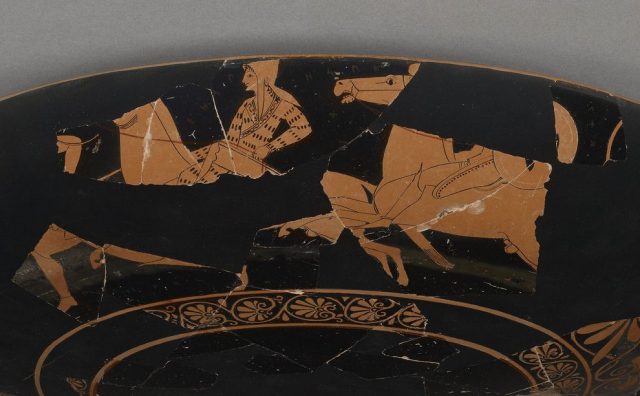MI weekly selection #94

Amazon warriors’ names found on ancient Greek pottery
Strange inscriptions on ancient Greek pottery appear to name Amazon warrior women, according to a study in Hesperia. Linguists deciphered the inscriptions on 12 vases dating from between 550 B.C. to 450 B.C. into phonetic sounds and sent them, without explanation, to McMaster University’s John Colarusso, an expert on rare Caucasus languages, and he translated them into names such as Princess, Don’t Fail and Battle-Cry. The Greeks were trying to phonetically recreate the sounds of Scythian words, researcher say.
Human-raised chimps exhibit social issues among their own species
Raising chimpanzees as pets or performers takes a toll on the creatures, who are unable to establish social bonds with other chimpanzees when placed in sanctuaries, according to a study published in PeerJ. Researchers noted a particular difference regarding grooming behavior, which is an extremely social aspect for chimps raised with little or no human contact. Human-raised chimps don’t participate in social grooming, causing other chimps a higher level of tension that can result in aggressiveness.
Scientists develop stem cell paste that could help repair bones
Researchers at the University of Nottingham are developing a paste-like material that consists of hollow spheres of calcium phosphate packed with stem cells that could help new bone to develop. The process would involve extracting stem cells from the patients’ bone marrow and combining them with the microspheres before infusing it into the thinning bones so the stem cells migrate to the damaged areas to promote repair.
Experiment back up Einstein’s time dilation theory, again
Using a particle accelerator, researchers created a moving clock of lithium ions and precisely measured the transitions as electrons moved to various energy levels. The result is 50 to 100 times better than any other method used to measure relativistic time dilation.
Children crafted finely detailed Stonehenge treasures, study suggests
The Stonehenge treasures, ancient intricate jewelry and dagger adornments found in 1808 at a burial mound near the monument, could only have been made by children, according to experts. The items, made almost 4,000 years ago, well before the invention of the magnifying glass, are so finely detailed and are made with such small studs that only children would have been able to create them, researchers suggest.